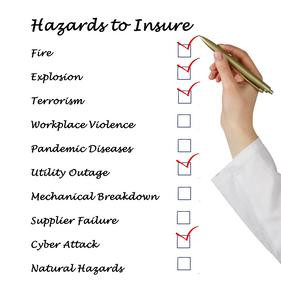Terrorism Risk Insurance Act Expiration Threatens Commercial Property Loans

Following 9/11, many lenders required property developers and owners to carry terrorism coverage. To facilitate that coverage the Terrorism Risk Insurance Act (TRIA) was established in 2002 as federal protection for insurers if an act of terrorism were to result in losses above $100 million. It had been reauthorized twice, and the House voted to extend TRIA, but Congress, due to lack of agreement in the Senate, was unable to agree on terms to extend the act beyond 2014.
Many commercial property developers rely on TRIA to fulfill their loan requirements and what the expiration of TRIA means for developers is unclear. One possibility is lenders could declare thousands of commercial property loans nationwide to be in default given the lapse of required terrorism coverage.
The expiration of TRIA could have a significant effect on commercial construction in states such as Maryland, where developers rely heavily on terrorism coverage in part because of the state’s heavy concentration of federal government buildings. Janice Kirkner, president of the Maryland Association of Realtors, told the Baltimore Sun, “The end result would be a spiral effect.” “Construction could slow and employers certainly wouldn’t be looking to start any new buildings because they couldn’t afford to take the coverage on themselves,” she said. “The economy is still fragile. And while on the commercial end we’re making great strides, we need to have this insurance to keep us going.”
The House voted to raise the federal coverage protection to $200 million in industry losses, and included a measure to create the National Association of Registered Agents and Brokers (NARAB) to make it easier for insurance agents and brokers to sell policies across state lines. Senate leaders have pledged to work on reauthorizing the legislation when it resumes in January. However, there is also opposition to renewal which means uncertainty for developers will continue.
Unless and until TRIA is renewed, careful attention will have to be given to terrorism coverage clauses in commercial real estate loans and close coordination between developers, lenders and insurers will be required. Check back on our site for additional information on TRIA as anticipated legislation moves through congress.
